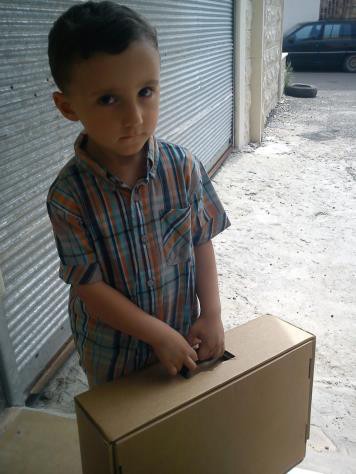
The crisis in Syria continues to escalate and 9.3 million people are in need of humanitarian assistance—more than 40 percent of the country’s total population. With winter fast approaching, these staggering numbers speak to the urgency of preparing Syrians for the upcoming cold weather.
Majd and his family are one of many receiving winter relief assistance from USAID’s Office of U.S. Foreign Disaster Assistance. Intense fighting forced him to flee Homs with his wife, three-year-old son and elderly mother. When they reached safety in Tartous, they had nothing but each other and the clothing on their backs.
The family managed to find shelter in a small room of a shared compound housing several displaced Syrians, but this new ‘home’ was in no condition to protect them from a cold winter. It had no furniture, bed, or floor coverings, leaving them with nowhere to sleep but the hard, cold floor.
Due to the conflict, Majd had been out of work for close to a year. Left without any source of income, he was unable to buy even one blanket for his family. It was USAID partners that provided Majd with mattresses and extra blankets to help keep his family warm.
With many more people now in need since last year, the United States began preparing winter relief kits and coordinating distribution plans over the summer. Efforts to distribute thermal blankets, warm clothing and additional plastic sheeting for shelter will ramp up as the cold weather sets in.
USAID partners are also working to improve infrastructure in both camp and urban areas to provide people with adequate protection from winter weather elements.
The United States has accelerated its humanitarian response at every step to meet the increasing needs, having contributed more than $1.3 billion in humanitarian aid to date.







Comment
Make a general inquiry or suggest an improvement.